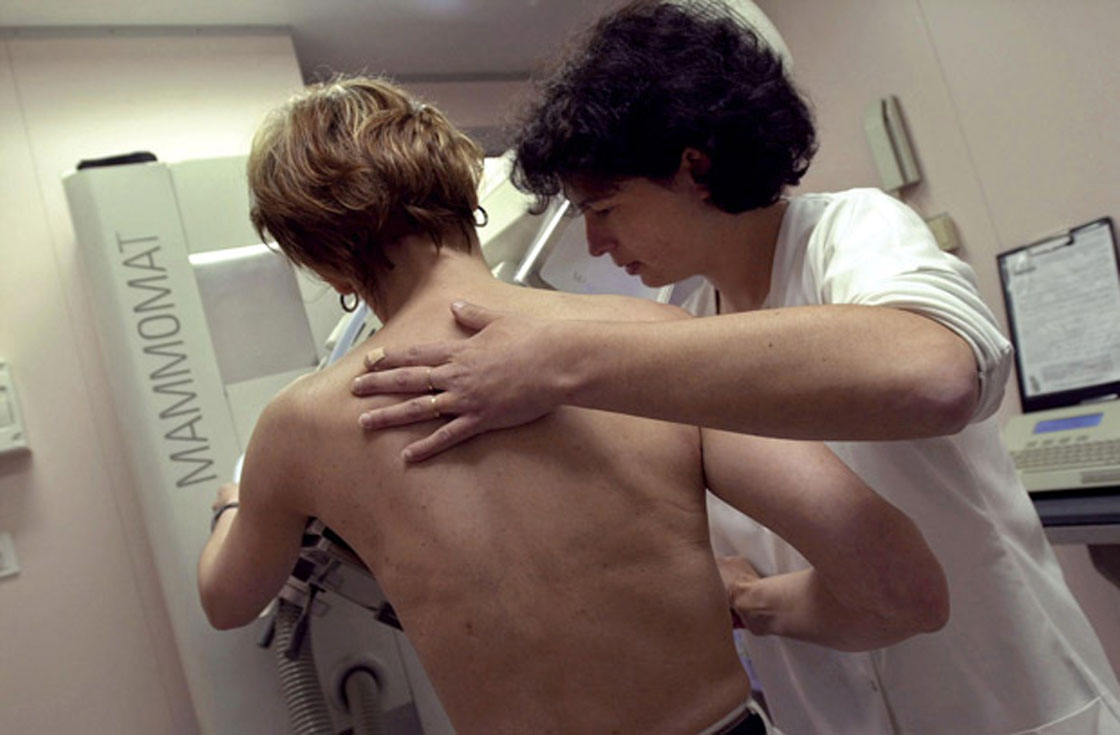TORONTO – University of Alberta researchers say a simple blood test could detect if breast cancer patients will face recurrence of the disease, a groundbreaking finding that could change the way these women are initially treated to fight their cancer.

After studying the DNA of 369 women who were diagnosed with breast cancer in Alberta, the scientists say they found a ‘genetic marker’ – a string of different chromosomes in several places – that could be the key to predicting which patients’ cancer will resurface later on.
“If we can accurately predict which women are at high risk of breast cancer recurrence, it gives the physicians and oncologists treating those women time to design a more aggressive therapy in hopes of preventing the cancer from coming back,” said lead author, Dr. Sambasivarao Damaraju.
“There is no prior way to determine which subset of patients would show recurrent disease than simply to wait for many more years until the disease shows up,” he said, noting that sometimes, at that point, it’s too far gone to treat.
Damaraju has been investigating breast cancer – specifically why some women are diagnosed with the disease while others aren’t – while at the Alberta university where he teaches medicine.
Breast cancer is harder to beat in recurrence stage
Damaraju says our bodies’ genome sequence is identical up to 99.9 per cent – it’s that 0.1 per cent difference from billions of DNA building blocks that offer clues that explain why some people get sick, or why people react to treatment in different ways.
- Shoppers faces proposed class action over claims company is ‘abusive’ to pharmacists
- ‘Bacterial vampirism’: Deadly pathogens attracted to human blood, study finds
- Most Canadian youth visit dentists, but lack of insurance a barrier
- Bird flu risk to humans an ‘enormous concern,’ WHO says. Here’s what to know
Fighting cancer that’s recurred is more difficult because it could be linked to treatment failure or tumours may be more resistant the second time around to conventional therapy.
This is why determining the DNA differences in those who have their cancer recur from those who don’t is pivotal.
Once these tests that signal cancer recurrence are adopted by doctors – some time in the future, Damaraju predicts – physicians will have valuable information that’ll help them decide how to fight patients’ cancer.
“The physicians have the advantage to design more aggressive therapies right upfront rather than waiting for 10 or more years for the disease to show up for a second time,” he told Global News.
“It may be too late by then to manage the disease, and recurrent disease tends to be more aggressive than the primary disease.”
Right now, treatment options for breast cancer patients are based on what doctors know about the tumour – size, grade, and certain markers within the tumour.
In his research, Damaraju zoned in on women who had a good prognosis – this group had cancer that doctors suggested had a high success rate in recovery and response to treatment.
About 70 per cent of all breast cancers fall into this category. But of 369 women involved in the study, 155 had their cancer come back.
This specific cancer studied is from the Luminal A subtypes, but Damaraju says he hopes to extend his testing of DNA to other breast cancer subtypes.
His next steps include studying a larger cohort, about 2,000 women fighting breast cancer, to confirm his findings.
The results of that study could be published in about three years, pending funding. Damaraju says he suspects that just a few years after that, the DNA predictor test could be tested in clinical studies before they’re made available for women.
Breast cancer recurrence rates in Canada
Damaraju says that breast cancer is the most common cancer in women in the developed world, with 22,700 new cases and 5,100 deaths anticipated in Canada for 2012.
Recent estimates suggest that one million breast cancer cases are diagnosed in the world each year, and up to 60 per cent are Luminal A subtypes.
About five to eight per cent of these cases recur and victims die.
The Canadian Breast Cancer Foundation, which funded the research, says that about 10 per cent of people diagnosed with breast cancer have a chance of reoccurrence.
The majority of these instances occur within five years of initial treatment, a spokesperson told Global News.
After that time frame, the more time that passes, the likelihood of reoccurrence decreases.
Damaraju’s complete findings were published at 5 p.m. ET Wednesday in the Public Library of Science or PLoS One.




Comments